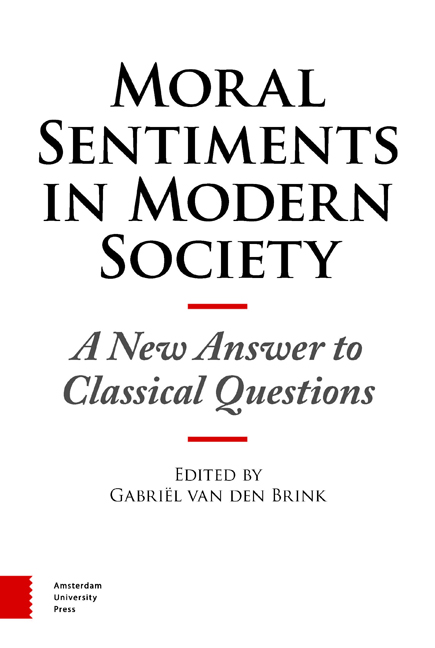Book contents
11 - An Outline of Modern Morality
Published online by Cambridge University Press: 02 February 2021
Summary
It is time to assess our findings. What, then, have we learned from our description of the Netherlands as a modern society? How do things stand with regard to moral sentiments in this society? And to what extent can we extrapolate more general conclusions from our specific case? Before we answer these questions, let us go back to the problem we set out in the first two chapters of this book. We wanted to find out how the process of modernisation and the cultivation of moral values impact each other (section 1). One difficulty we have in assessing our findings is that our empirical research covers such sharply divergent developments, processes and phenomena. So we shall list thirty specific phenomena that may be taken as a summary of our main findings. For each of these phenomena, we shall then determine what effect modern society has on moral sentiments. We make a distinction between phenomena that reflect a deterioration of, or a threat to, morality (section 2), phenomena where the effect we see is neutral or ambivalent (section 3), phenomena that we regard as having moderately positive effects (section 4) and phenomena where the effects seem unequivocally positive (section 5). Using this as a basis, we move to a more general consideration of what a ‘modernisation of morality’ could imply (section 6). In addition, we shall explore the converse line of thought and say something about the ‘moralising of modernity’ (section 7). We conclude with a discussion of civic life in the Netherlands. We shall show how, after the 1960s, the public domain has ‘liberated’ itself from all moral values and that this applies in particular to political life (section 8). It can also be argued, however, that wherever it occurs, political activity always has its ethical aspects (section 9). The conflict between these tendencies may explain the tensions that have characterised civic life in the Netherlands over the past two decades and which have resulted, among other things, in the emergence of populism (section 10).
Back to the original question
As promised, we turn first to the problem we set out in the first two chapters of this book. We wanted to get to grips with the significance of moral sentiments in modern society. For this, we had to take three steps.
- Type
- Chapter
- Information
- Moral Sentiments in Modern SocietyA New Answer to Classical Questions, pp. 349 - 392Publisher: Amsterdam University PressPrint publication year: 2016



